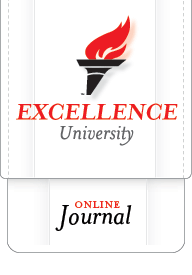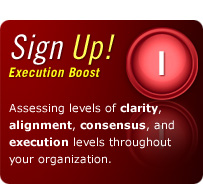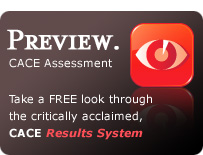Self-Mastery Tip: Increase “Psychological Flexibility”
January 10th, 2010
Often, being extroverted (or focused on what is happening outside of ourselves) is helpful to the ability to experience or achieve what we want to in life. On the other hand, introversion (or being focused on what is happening inside of ourselves) is also frequently very helpful as well. An ability to focus on what is happening outside of ourselves (including the thoughts and feelings of others) and inside of ourselves (including our own strengths and weaknesses) when situations call for it can be critical to personal and professional success. For this reason, psychological flexibility can help us be more at ease and more effective across a variety of situations in life.
Psychological flexibility can be increased by understanding our current comfort zones and how to broaden them. Here are some ways people have been able to increase flexibility in their lives:
- Become clear about when you feel more introverted and/or more extroverted and what influences this. The first step in enhancing psychological flexibility is often awareness of our current levels of introversion and extroversion and what situations or people tend to influence these feelings. It can be helpful to know what characteristics of ourselves, others and our environments tend to influence us to be more engaged in the outside world and/or more focused on our internal states of being.
- Become skilled at using relaxation exercises when feeling overwhelmed. In certain situations, we can all be overwhelmed by too many extroverted activities and/or too many introverted experiences. Relaxation exercises (such as deep breathing or relaxed stretching) can help us to expand our comfort zones when we feel overwhelmed by too many external stimuli (extroverted experiences) such as other people’s needs or reactions by some of the things that are going on inside of us (introverted experiences), such as excitement, fear or anger.
- Practice becoming more comfortable in different situations at a pace that is challenging, but not overwhelming. Once we know what tends to influence us and how to relax during challenging experiences, we can begin expanding our comfort zones across situations. For example, if we tend toward introversion and are overwhelmed at board meetings or social gatherings, we can begin by spending 15-30 minutes with others, then going somewhere to practice solitary relaxation exercises before returning to the social experience. If we are more comfortable in extroverted situations and are overwhelmed by certain internal or solitary experiences (fear, anger, excitement, boredom, etc.), we can start by engaging in 15 minutes of these introverted experiences, then relax with others for awhile. Once we become more at ease in situations that require introversion and extroversion, we can increase the amount of time spent in all sorts of experiences that we believe are related to our own personal and professional success and satisfaction.
NOTE TO THOSE USING THE MISSION FULFILLMENT SYSTEM: You can work toward increasing psychological flexibility by adding a new Objective to your system by using the “Add New Item” link (for example, “Increase my psychological flexibility”). You can then develop a SMART Goal related to that new Objective by using the “Add Subitem” link to the far right of the new Objective (for example, “Practice 10 minutes of deep breathing when I am overwhelmed in social situations.”).
FOR THOSE WHO ARE NOT ON THE MISSION FULFILLMENT SYSTEM: Click here to for more information and click here to sign up.
FINAL NOTE: If you were linked to this article by a video or email, please return to that link and proceed with any other instructions that you deem helpful. For more Execution Excellence tips and tools visit our site at: www.excellenceuniversity.net
Article Filed under: 1. Self-Mastery Tips



2 Comments Add your own
1. Bryce Maxwell | August 28th, 2014 at 3:44 pm
When reading about what Dr. Higley calls “psychological flexibility” in this article, I am reminded of the process that Carl Jung referred to as “individuation.”
It isn’t that these two terms are interchangeable, but rather that “psychological flexibility” is crucial when attempting to reach the “ideal” of individuation. Contrary to what some people may think, human beings are not bound to their identifications. By this I mean that if you took a survey that said you were an extrovert, that does not mean that you are ONLY extroverted and you lack any sort of capacity for introverted action. Much of Jung’s theoretical work was focused on the theme of integration. It was not enough to simply nurture one’s public image through proper use of manners and social skills (which would fall under the Jungian archetype – the persona). Jung also advocated that people give ample attention to the other archetypes within their psyche (http://wenku.baidu.com/view/03798778168884868762d667.html). Although Dr. Higley isn’t focusing so much on Jungian theory – I felt it necessary to include because it offers some historical support for the balance and flexibility that Higley is advocating for here.
Despite hearing about the necessity to integrate all aspects of one’s psyche – you may be left in the dark as to how you should go about accomplishing this. Unfortunately Dr. Higley is only touching on the extroversion/introversion conflict, although I’m sure that some of these tips could be beneficial for those who are struggling with other conflicts as well (whether external or internal). The key is to try and keep and open-mind, be knowledgeable about situational influences and to “branch out” at a pace that is comfortable for you.
2. Briana de Cola | February 11th, 2018 at 9:28 pm
This article is wonderful! Psychological flexibility is not only something that benefits our person but also the people we interact with. Increasing our psychological flexibility is imperative to a healthy and happy life while also allowing us to help others, is there a greater reward? The notion of understanding our own comfort zones and broadening those for living a healthy life is akin to Abraham Maslow’s claim that, “There may be a movement toward defense, toward safety, toward being afraid; but over on the other side, there is the growth choice. To make the growth choice instead of the fear choice a dozen times a day is to move a dozen times a day toward self-actualization” (pg. 258). It is always the easier and more comfortable choice to stay in a psychological place that is familiar to us. Paradoxical as it may seem, discomfort due to change is a huge catalyst for personal growth. As Maslow states, making that growth choice rather than a fear choice will only better us in succeeding in situations unfamiliar to us. If you can be honest with yourself, different situations will not be so overwhelming.
I love humility, I have found it to be the most efficient way to learn about ourselves. Consequently, knowing about our self allows us to feel comfortable not only in different situations but situations involving people who are detrimental to our psychological health. For example, if you are out at a party and some stranger comes over and tells you that you are an egotistical person, with already knowing that you have a narcissistic personality how much would such a comment bother you? Now imagine the same situation but, you have not become aware of this personality trait…imagine the wrongful resentment you might have towards that person and/or yourself.
This article makes the excellent claim that being comfortable in both an introversion and extroversion situation will ultimately lead to a place of psychological solace. Relaxation exercises as discussed in the article can help tremendously also. Sometimes it is easier to get angry at people when they say intentional or unintentional words of malice, but if we want to increase our psychological flexibility doing some relaxation exercises during or after this type of situation can help greatly.
I believe that Dr. Higley’s ‘psychological flexibility’ is very similar to Maslow’s self-actualization. Although the path for both these ideas never truly reach a terminus, they help us reach Self-Mastery. We must first acknowledge our actions and thoughts and only then will we have control over our person and environment. “Looking within oneself for many of the answers implies taking responsibility. That is in itself a great step toward actualization” (pg. 258). From one perspective, our life choices are the only tangible facets of reality we own. Self-Mastery is a choice and evidently an empowering one…. Nothing in the entire universe influences our psyche us unless we allow it, the choice is ours.
Schustack, M. and Friedman, H. (2008). Readings in personality. 2nd ed. Boston, Mass.: Pearson/Allyn and Bacon, pp.255-262.
Trackback this post | Subscribe to comments RSS Feed
Leave a Comment
Some HTML allowed:
<a href="" title=""> <abbr title=""> <acronym title=""> <b> <blockquote cite=""> <cite> <code> <del datetime=""> <em> <i> <q cite=""> <s> <strike> <strong>